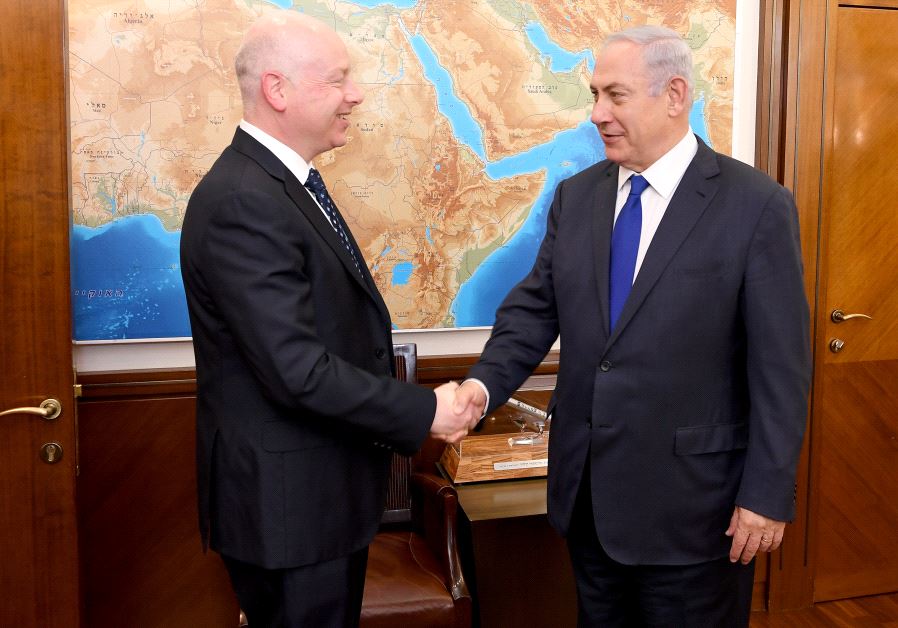Analysis: Har Adar attack pours cold water on Greenblatt peace effort
The attack came as Trump's envoy is in the country trying to push forward the US administration’s diplomatic initiative.
 Jason Greenblatt Meets PM Netanyahu(photo credit: MATTY STERN, US EMBASSY TEL AVIV)Updated:
Jason Greenblatt Meets PM Netanyahu(photo credit: MATTY STERN, US EMBASSY TEL AVIV)Updated: